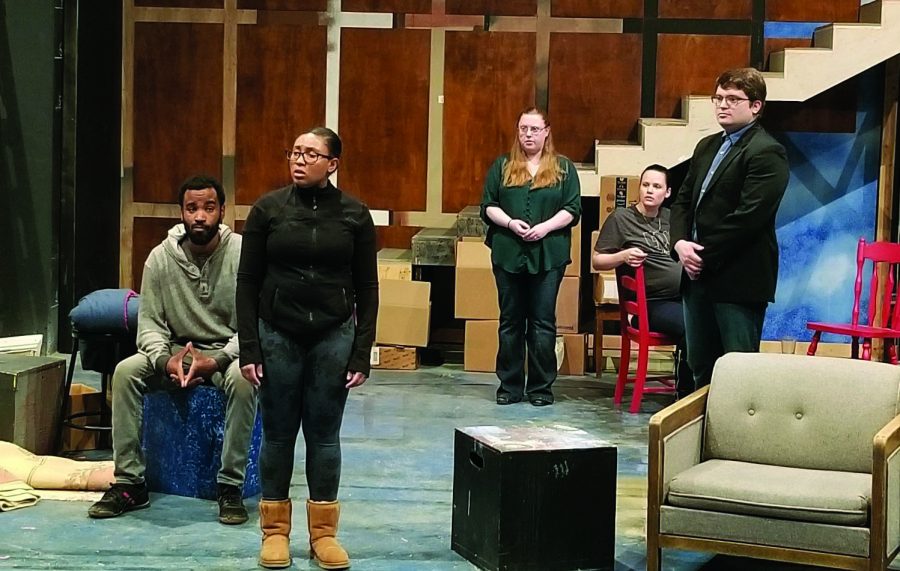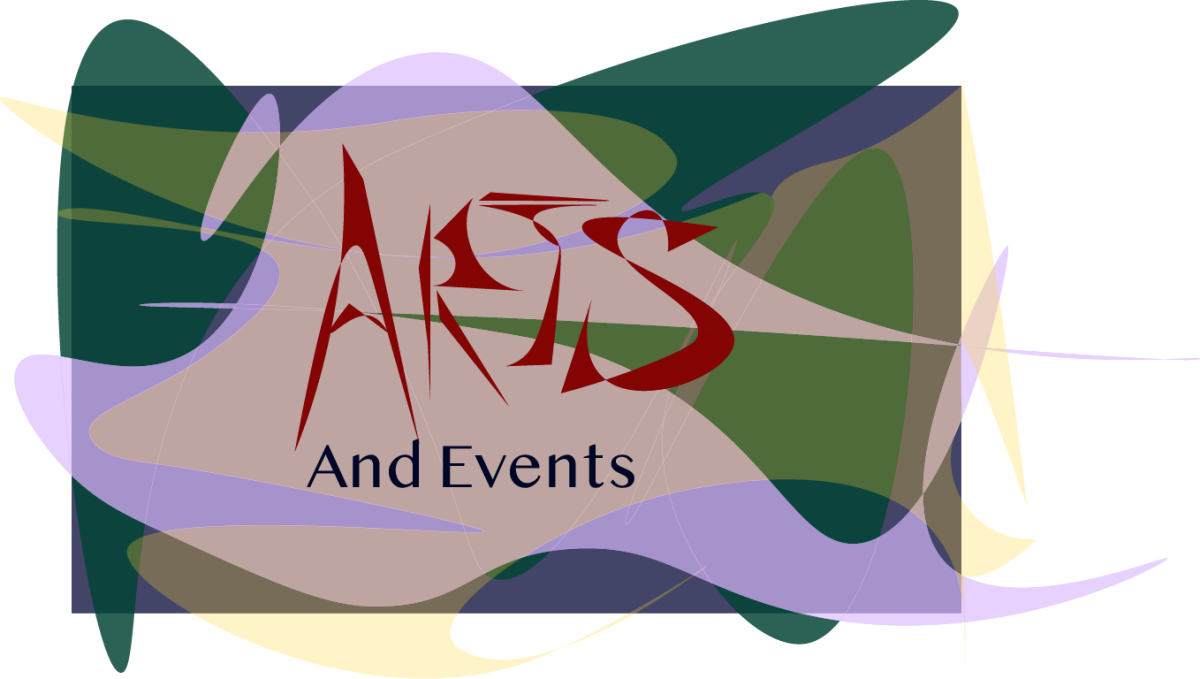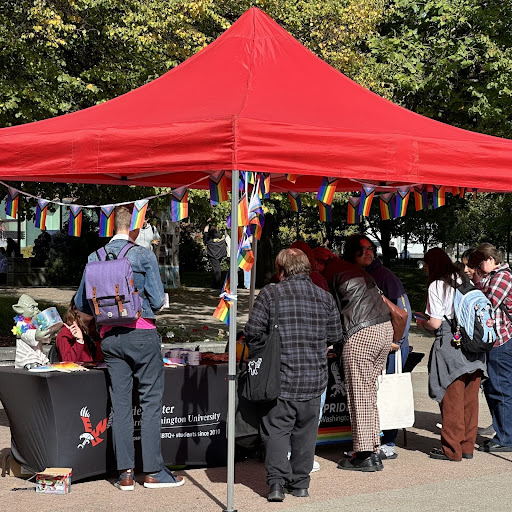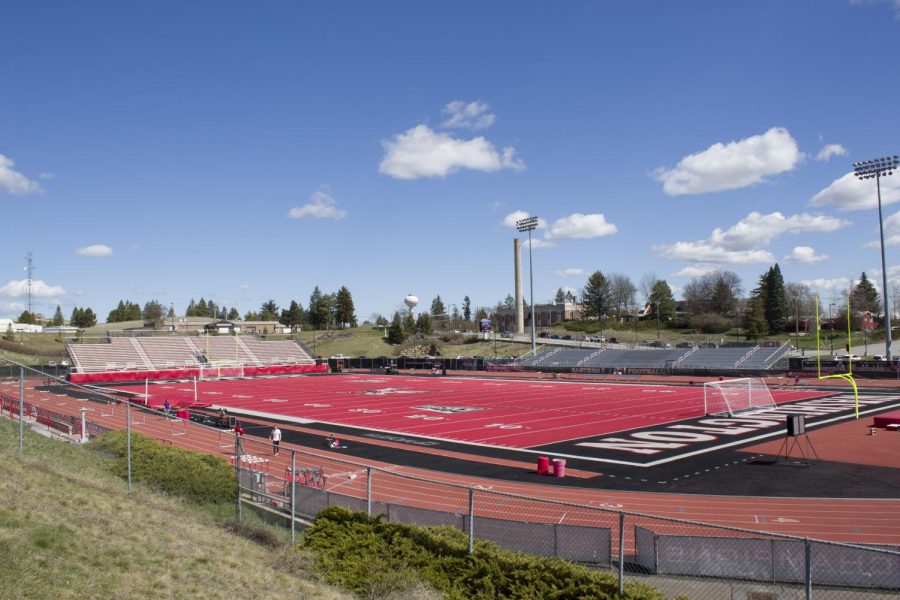“Clybourne Park” comes to EWU Theatre
Erica Bullock for The Easterner
Actors rehearse on stage in the EWU Theatre Building on April 23. Tension rose in the room during this scene in the first act f Bruce Norris’ play, “Clybourne Park,” a sequel toLorraine Hansbery’s play, “A Raisin in the Sun”
May 3, 2018
Eight years ago, playwright Bruce Norris created an award-winning fanfiction sequel to Lorraine Hansberry’s play, “A Raisin in the Sun.” EWU Theatre invites the audience to think and laugh through an ugly reminder of history and all the work that still remains, with its upcoming production of “Clybourne Park.”
Act One begins hours after the Younger family from “A Raisin in the Sun” rejects Karl Lindner’s bribe to keep them from moving to his neighborhood. Lindner is a determined and opinionated man and the only white character in Hansberry’s play. He is also the only character to appear in both plays.
EWU Theatre’s guest director Josh Stamoolis explained that “Clybourne Park” looks at the same situation as “A Raisin in the Sun,” but “from the viewpoint of the family that is selling the house.”
Act Two takes place in the same house 50 years after Act One, in 2009. Stamoolis said that in the intervening 50 years, the same neighborhood is predominantly black and on the verge of gentrification.
“It’s the inverse of Act One … instead of a black family threatening to disrupt a white neighborhood, a white family wants to move in,” Stamoolis said.
Not only is “Clybourne Park” a Pulitzer Prize, Tony Award and Laurence Olivier Award-winning play, another interesting experience for the audience will be that each actor will be portraying two roles. Actor Varinique Davis will play Francine and Lena, and actor Hazel Bean will play Bev and Kathy. The actors described the significance of “Clybourne Park” as deeply relevant to the local community in many ways.
“These are important conversations to have now, especially,” Bean said.
The actors acknowledged the racist flyers that were put up around EWU in early February and the Starbucks employee in Philadelphia, Pennsylvania who had two black men arrested who were waiting for a friend to arrive before ordering.
“This particular show tackles politics, it tackles race, and it tackles a wide spectrum of what people don’t really have around here,” Davis said.
Davis explained that because there are fewer people of color in this community, there are less opportunities to experience and empathize with their experiences.
This is Stamoolis’ second time working with the EWU Theatre. He said “Clybourne Park” is showing at a relevant time for this community because of the connection between race and housing laws.
Stamoolis mentioned the research by an EWU graduate, Logan Camporeale, who he said, “uncovered all sorts of whites-only housing covenants that are still on the books in neighborhoods throughout Spokane County.”
The covenants were introduced throughout the 1940s, ‘50s and ‘60s and describe the exclusion of any minorities from moving into certain neighborhoods throughout the county. The covenants are legally unenforceable, but they are still attached to each property as a reminder of our region’s racist history.
Another unique aspect of this show is that it will feature thrust staging. This means the audience will be seated on the stage itself, on three sides, instead of in the auditorium seats opposite the stage, which is the regular seating called proscenium. Thrust staging inserts the audience as part of the play, according to Davis.
“The wonderful thing about thrust staging is that not everyone will be seeing the same face at the same time,” said Bean. “Someone could walk away with an understanding of a relationship or journey on stage that might enlighten them in some way. If they come back and see it again, they might see it from another perspective and get something new out of it.”
Both the actors and director agreed that the audience can come away with a blueprint for having honest conversations with themselves and their neighbors about the issues in the play.
“When faced with these conversations, they aren’t just for argument […] but the feeling of listening and trying to understand where other people are coming from,” Davis said.
Showtimes for EWU’s production of “Clybourne Park” are May 11 and 12 at 7:30 p.m., May 17 at 5 p.m., May 18 and 19 at 7:30 p.m., and May 20 at 2 p.m. EWU student tickets are free with a student ID, and general admission tickets cost $10. Tickets will be available at the box office approximately an hour before the show starts and will not be sold in advance.







